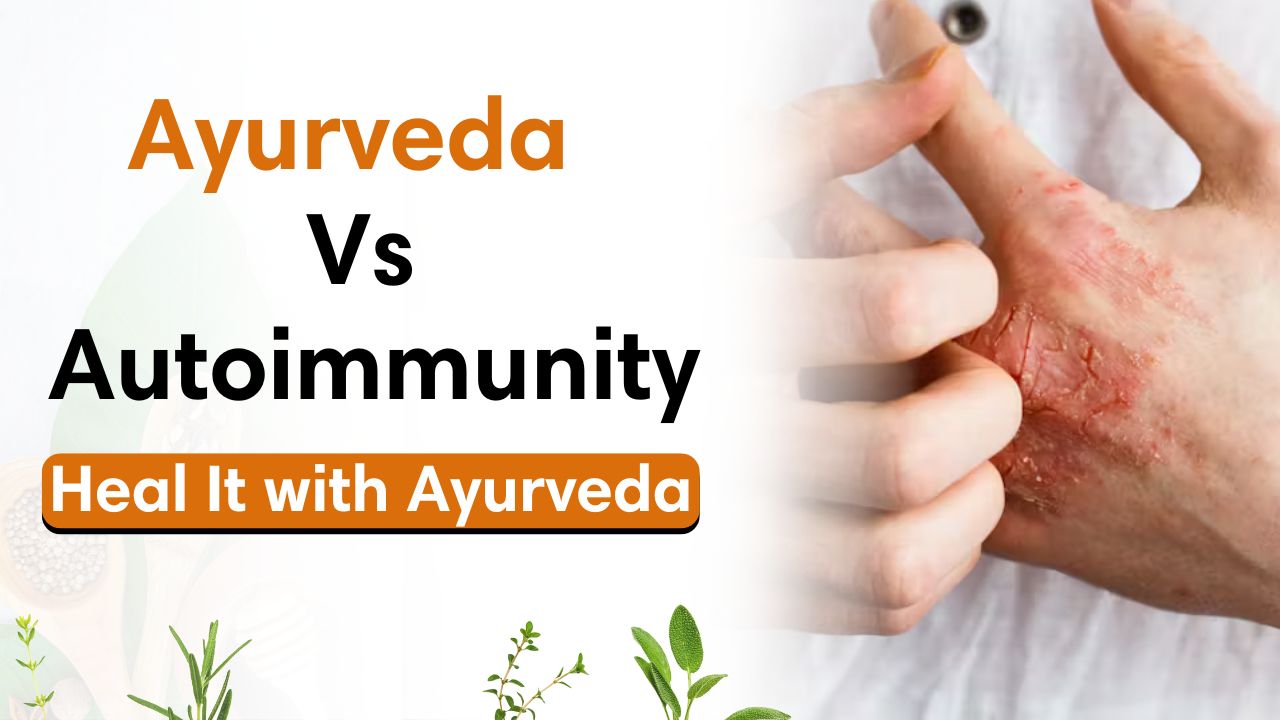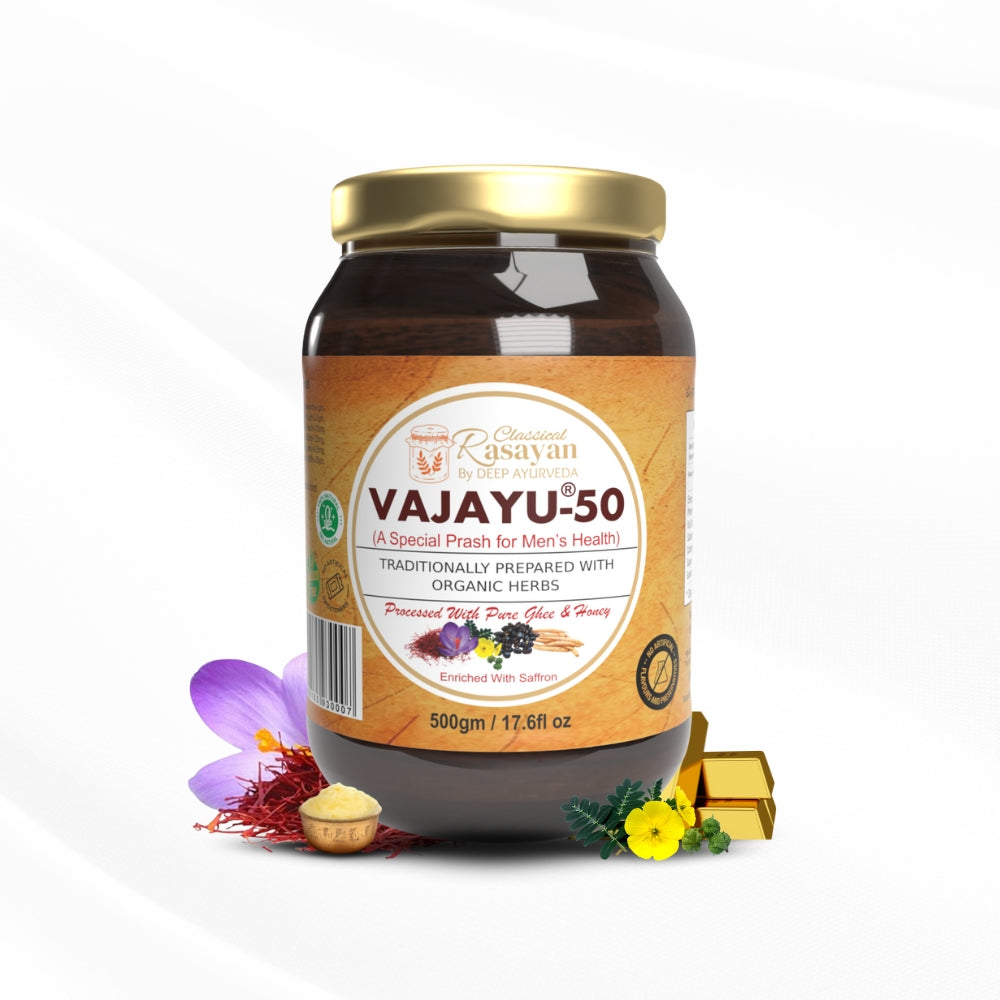Introduction: Understanding Autoimmune Diseases through Ayurvedic Wisdom
Autoimmune disorders—conditions where the immune system attacks the body’s own tissues—pose significant clinical challenges worldwide. Modern treatments often suppress immunity temporarily but fail to offer permanent restoration.
Ayurveda, the ancient science of life, addresses these ailments through holistic understanding involving Agni (digestive fire), Ama (toxins), Dosha imbalance, Dhatukshaya (tissue depletion), and Ojas kshaya (loss of vitality and immunity).
Deep Ayurveda harnesses classical Ayurvedic knowledge combined with modern clinical expertise, offering personalized Panchakarma detoxification and Rasayana rejuvenation protocols that target the root cause of autoimmune pathogenesis.
Ayurvedic Conceptualization of Autoimmune Disorders
The term “autoimmune disorder” is not directly found in Ayurvedic texts; however, the disease process is explained as:
-
Agni Mandya (weak digestive fire)
-
Ama Sanchaya (accumulation of undigested toxic substances)
-
Dosha Prakopa (vitiation of Vata, Pitta, Kapha)
-
Srotorodha (blockage of micro-channels)
-
Dhatukshaya (degeneration of bodily tissues)
-
Ojas Kshaya (diminished immunity and vitality)
The foundational verse in Charaka Samhita elucidates Ama’s central role:
“अजिर्णे भुज्यते यद्वत्, पच्यते सम्यकग्निना |
तद्रसः शुद्धिमाप्नोति, न सन्देहोऽत्र जायते ||”
(Charaka Samhita, Sutra Sthana 13/25)
“Food that is properly digested by Agni nourishes the tissues; when digestion fails, Ama is produced, which is the root of all diseases.”
Ayurvedic Pathogenesis (Samprapti) of Autoimmune Disorders
The progression involves:
-
Ama Dosha Sanchaya: Production of toxic Ama due to Agni dushti.
-
Srotorodha: Blockage of bodily channels, impairing nutrient and immune transport.
-
Dosha Prakopa: Aggravation of Vata and other doshas, producing symptoms like inflammation, pain, and tissue destruction.
-
Dhatukshaya and Ojas Kshaya: Depletion of body tissues and immune essence leading to systemic immune dysfunction.
This is summarized in the verse from Madhava Nidana:
“आमदोषाः समुद्भूता, स्रोतोरोधं जनयन्ति ते |
सङ्घातेन मरुत्पित्तं, धातूनां क्षयमानीयुः ||”
(Madhava Nidana – Ama Vata)
“When Ama vitiates doshas and blocks channels, it causes dosha congestion and tissue degeneration.”
Ayurvedic Correlates of Common Autoimmune Disorders
|
Modern Disease |
Ayurvedic Diagnosis |
Predominant Dosha |
|
Rheumatoid Arthritis |
Ama Vata |
Vata + Ama |
|
Psoriasis, Eczema |
Kushtha, Raktaja Vikara |
Pitta + Kapha |
|
Systemic Lupus Erythematosus |
Raktamoksha Vyadhi |
Pitta + Vata |
|
Hashimoto’s Thyroiditis |
Galaganda |
Kapha + Vata |
|
Ulcerative Colitis |
Grahani Dosha |
Pitta + Vata |
|
Multiple Sclerosis |
Vata Vyadhi, Majja Kshaya |
Vata |
These conditions often involve Ama presence (Sama state) with notable depletion of Ojas, the vital immune energy.
“ओजो हि नाम बलं तस्य तदनुग्रहकारणम्।”
(Charaka Samhita, Sutra Sthana 17/73)
“Ojas is the essence of strength and the source of bodily protection.”
Etiological Factors (Nidana) in Autoimmune Diseases
Ayurveda identifies multiple causative factors that contribute to autoimmune disorders:
-
Agni Mandya: Impaired digestive fire leads to Ama.
-
Viruddha Ahara: Incompatible food combinations (e.g., fish with milk).
-
Dina Ratri Swapna Viparyaya: Disrupted circadian rhythm and sleep cycles.
-
Manasika Karana: Psychological stress, anxiety, and grief.
-
Prajnāparādha: Errors in judgment and intellectual disturbances.
-
Beeja Dosha: Genetic predisposition.
-
Adhyashana: Eating before the previous meal is digested.
These trigger Dosha imbalance, Ama formation, and eventual systemic immune dysfunction.
Deep Ayurveda’s Diagnostic Excellence
Deep Ayurveda combines classical and contemporary diagnostic methods:
-
Nadi Pariksha (pulse diagnosis) to assess dosha imbalance
-
Prakriti & Vikriti Analysis (constitution and pathology)
-
Mala and Mutra Pariksha (stool and urine examination)
-
Modern blood tests (RA factor, ANA, CRP, TSH) when indicated
-
Assessment of Agni, Srotas, Ojas status
This integrative diagnostic approach enables a personalized treatment plan for each autoimmune patient.
Panchakarma: The Cornerstone of Autoimmune Detoxification
Deep Ayurveda’s Panchakarma protocols are scientifically tailored to clear Ama, balance Doshas, rejuvenate Dhatus, and restore Ojas.
Purva Karma (Preparatory Measures)
-
Deepana-Pachana: Use of Trikatu, Pippalimula, and Chitrakadi Vati to enhance Agni.
-
Snehapana: Internal oleation with Maha Tiktaka Ghrita or Guggulutiktaka Ghrita.
-
Swedana: Steam therapy using Dashamoola decoction to liquefy toxins.
Pradhana Karma (Primary Detox)
-
Virechana (Purgation): For Pitta predominant autoimmune conditions such as psoriasis and lupus.
-
Basti (Medicated Enema): For Vata predominant diseases like rheumatoid arthritis and multiple sclerosis.
-
Nasya and Shirodhara: For Majja Dhatu and neurological involvement.
“तत्र बस्तिः हि वातहरणं श्रेष्ठम्।”
(Charaka Siddhi Sthana 1/38)
“Basti is the supreme therapy for pacifying Vata dosha.”
Paschat Karma (Post-Therapy Rejuvenation)
- Rasayana therapy with herbs such as Ashwagandha, Guduchi, Amalaki, and Swarna Bhasma to rebuild immunity.
-
Satmya Ahara (wholesome diet), meditation, and disciplined lifestyle practices for sustainable health.
Rasayana Therapy: Immune Rejuvenation
Rasayana, the science of rejuvenation, is vital in restoring immune strength in autoimmune diseases.
“रसायनानि च खलु जीवितम् आयुः मेधा बल वर्ण्य कांति...”
(Charaka Samhita, Chikitsa Sthana 1/1/7)
“Rasayana bestows longevity, intellect, strength, complexion, and vitality.”
Deep Ayurveda’s Rasayana formulations include:
-
Guduchi + Swarna Bhasma + Amalaki
-
Makardhwaja + Yashtimadhu + Shatavari
-
Abhraka Bhasma + Ashwagandha + Pippali
These powerful combinations rebuild cellular immunity post-Panchakarma.
Why Deep Ayurveda Excels in Autoimmune Disease Treatment
-
Authentic classical Panchakarma delivered by experienced Vaidyas
-
GMP-certified, organically sourced herbal formulations
-
Personalized, patient-centric protocols integrating diagnostics and therapy
-
Proven success in managing diseases such as rheumatoid arthritis, lupus, psoriasis, and multiple sclerosis
-
Comprehensive care including lifestyle and diet counseling
Conclusion: Deep Ayurveda—A Beacon of Hope in Autoimmune Healing
Autoimmune disorders signify deep immune dysregulation and tissue degeneration. Ayurveda’s holistic approach—focusing on rekindling Agni, eliminating Ama, balancing Doshas, and restoring Ojas—provides a sustainable path to recovery.
Deep Ayurveda represents the pinnacle of this classical wisdom, delivering precise Panchakarma detox, targeted Rasayana rejuvenation, and personalized care. It offers patients a transformative journey from chronic illness toward vibrant health.






